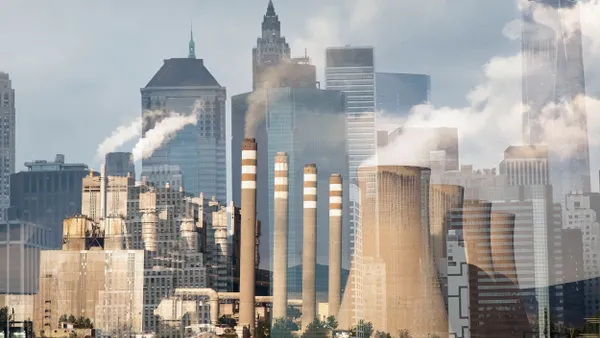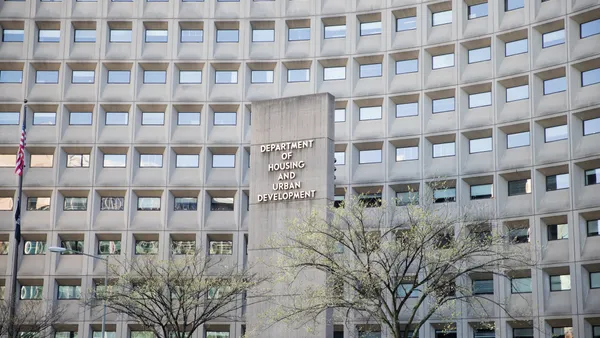Dive Brief:
- Humans must change the way the world's land and water resources are used to avert a climate crisis, an effort that includes cities, according to the latest report from the United Nations Intergovernmental Panel on Climate Change (IPCC).
- Cities cover less than 1% of the world's surface, but house 50% of the population and generate about 75% of the global total carbon emissions from energy use, according to studies cited in the report. Urban sprawl could consume as much as 5% of current cultivated land by 2050.
- Urbanization, the scientists on the panel found, converts agriculture, forested or undeveloped land and alters "natural or semi-natural ecosystems both within and outside of urban areas."
Dive Insight:
The latest report from the IPCC, a panel of more than 100 experts, is a dire warning about the exploitation of resources and comes less than a year after it warned that climate change must be acted on in about 12 years.
Agriculture practices, deforestation, urban sprawl and climate change are all linked, and could add up to a worldwide food crisis if not checked. Climate change has already affected food security, the scientists warn, and the impacts could get worse as temperatures and sea levels continue to rise.
The rapid trend towards urbanization could exacerbate those conditions.
Even though the density of cities means that they take up a relatively small amount of land, they can accelerate deforestation or replace land that could be used for agriculture or other purposes. That, in turn, limits the ability of natural landscape to capture carbon dioxide.
Urban sprawl also requires more transportation, increasing emissions; a 2018 report from the California Air Resources Board found that increased driving was hurting the state's ability to meet its climate goals and calling on denser development as one solution.
"We know the way we are using land right now is worsening climate change and exacerbating our inability to meet sustainable development goals," Kelly Levin, a senior associate with the World Resources Institute's global climate program, told Smart Cities Dive. "Cities have a role to play in leading by example in living sustainably on a smaller footprint, and showing how expansions can be done prudently."
Limiting the urban impact on surrounding land will require policies that limit sprawl and promote housing density, packing more people into smaller urban spaces.
Some cities have taken steps; notably, Minneapolis passed a plan that would zone more of the city for multi-family housing and allow for taller buildings, while also promoting transit-oriented development. A sustainability plan passed by Los Angeles County last week also emphasizes smart development and responsible land use.










